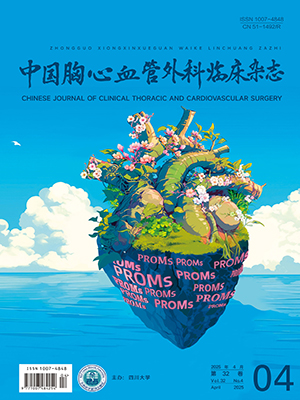| 1. |
van der Hoek L, Pyrc K, Jebbink MF, et al. Identification of a new human coronavirus. Nat Med, 2004, 10(4): 368-373.
|
| 2. |
Cui J, Li F, Shi ZL. Origin and evolution of pathogenic coronaviruses. Nat Rev Microbiol, 2019, 17(3): 181-192.
|
| 3. |
新京报. 世卫组织宣布新冠疫情为全球大流行, 古特雷斯呼吁行动. URL: http://www.bjnews.com.cn/world/2020/03/12/702593.html.
|
| 4. |
Lupia T, Scabini S, Mornese Pinna S, et al. 2019 novel coronavirus (2019-nCoV) outbreak: A new challenge. J Glob Antimicrob Resist, 2020, 21: 22-27.
|
| 5. |
Holmberg C, Blume SS, Greenough PRE, editors. The Politics of Vaccination: A Global History. Manchester: Manchester University Press, 2017.
|
| 6. |
Budnitz DS, Lovegrove MC, Shehab N, et al. Emergency hospitalizations for adverse drug events in older Americans. N Engl J Med, 2011, 365(21): 2002-2012.
|
| 7. |
Connolly SJ, Pogue J, Eikelboom J, et al. Benefit of oral anticoagulant over antiplatelet therapy in atrial fibrillation depends on the quality of international normalized ratio control achieved by centers and countries as measured by time in therapeutic range. Circulation, 2008, 118(20): 2029-2037.
|
| 8. |
White HD, Gruber M, Feyzi J, et al. Comparison of outcomes among patients randomized to warfarin therapy according to anticoagulant control: Results from SPORTIF Ⅲ and Ⅴ. Arch Intern Med, 2007, 167(3): 239-245.
|
| 9. |
吴国伟, 邓霆, 张曼琪, 等. 新冠疫苗接种态度及其社会心理影响因素的调查. 中国临床心理学杂志, 2021, 29(3): 622-625.
|
| 10. |
Wold WS, Toth K. Adenovirus vectors for gene therapy, vaccination and cancer gene therapy. Curr Gene Ther, 2013, 13(6): 421-433.
|
| 11. |
Folegatti PM, Ewer KJ, Aley PK, et al. Oxford COVID vaccine trial group. Safety and immunogenicity of the ChAdOx1 nCoV-19 vaccine against SARS-CoV-2: A preliminary report of a phase 1/2, single-blind, randomised controlled trial. Lancet, 2020, 396(10249): 467-478.
|
| 12. |
Salian VS, Wright JA, Vedell PT, et al. COVID-19 transmission, current treatment, and future therapeutic strategies. Mol Pharm, 2021, 18(3): 754-771.
|
| 13. |
Xia S, Duan K, Zhang Y, et al. Effect of an inactivated vaccine against SARS-CoV-2 on safety and immunogenicity outcomes: Interim analysis of 2 randomized clinical trials. JAMA, 2020, 324(10): 951-960.
|
| 14. |
Zhu FC, Li YH, Guan XH, et al. Safety, tolerability, and immunogenicity of a recombinant adenovirus type-5 vectored COVID-19 vaccine: A dose-escalation, open-label, non-randomised, first-in-human trial. Lancet, 2020, 395(10240): 1845-1854.
|
| 15. |
Jackson LA, Anderson EJ, Rouphael NG, et al. An mRNA vaccine against SARS-CoV-2—Preliminary report. N Engl J Med, 2020, 383(20): 1920-1931.
|
| 16. |
Zhu FC, Guan XH, Li YH, et al. Immunogenicity and safety of a recombinant adenovirus type-5-vectored COVID-19 vaccine in healthy adults aged 18 years or older: A randomised, double-blind, placebo-controlled, phase 2 trial. Lancet, 2020, 396(10249): 479-488.
|
| 17. |
Banerji A, Wickner PG, Saff R, et al. mRNA vaccines to prevent COVID-19 disease and reported allergic reactions: Current evidence and suggested approach. J Allergy Clin Immunol Pract, 2021, 9(4): 1423-1437.
|
| 18. |
国家卫生健康委疾病预防控制局. 新冠病毒疫苗接种技术指南(第一版). 中国卫生经济, 2021, 40(4): 封2, 前插1.
|
| 19. |
Wang J, Jing R, Lai X, et al. Acceptance of COVID-19 vaccination during the COVID-19 pandemic in China. Vaccines (Basel), 2020, 8(3): 482.
|
| 20. |
Otto CM, Nishimura RA, Bonow RO, et al. 2020 ACC/AHA guideline for the management of patients with valvular heart disease: Executive summary: A report of the American College of Cardiology/American Heart Association Joint Committee on Clinical Practice Guidelines. Circulation, 2021, 143(5): e35-e71.
|
| 21. |
Holbrook AM, Pereira JA, Labiris R, et al. Systematic overview of warfarin and its drug and food interactions. Arch Intern Med, 2005, 165(10): 1095-1106.
|
| 22. |
王斌, 徐志云, 叶小飞. 华人心脏机械瓣膜置换术后华法林抗凝强度标准的系统评价. 国际心血管病杂志, 2010, 37(6): 361-366.
|
| 23. |
贾晓英, 韩艳艳, 王晓锋. 心脏机械瓣膜置换术后华法林抗凝治疗效果及INR抗凝强度范围分析. 现代诊断与治疗, 2020, 31(12): 1918-1920.
|
| 24. |
Pallarés-Carratalá V, Polo García J, Martín Rioboo E, et al. COVID-19 vaccine and anticoagulation patients at high cardiovascular risk. SEMERGEN recommendations. Semergen, 2021, 47(1): 1-3.
|




